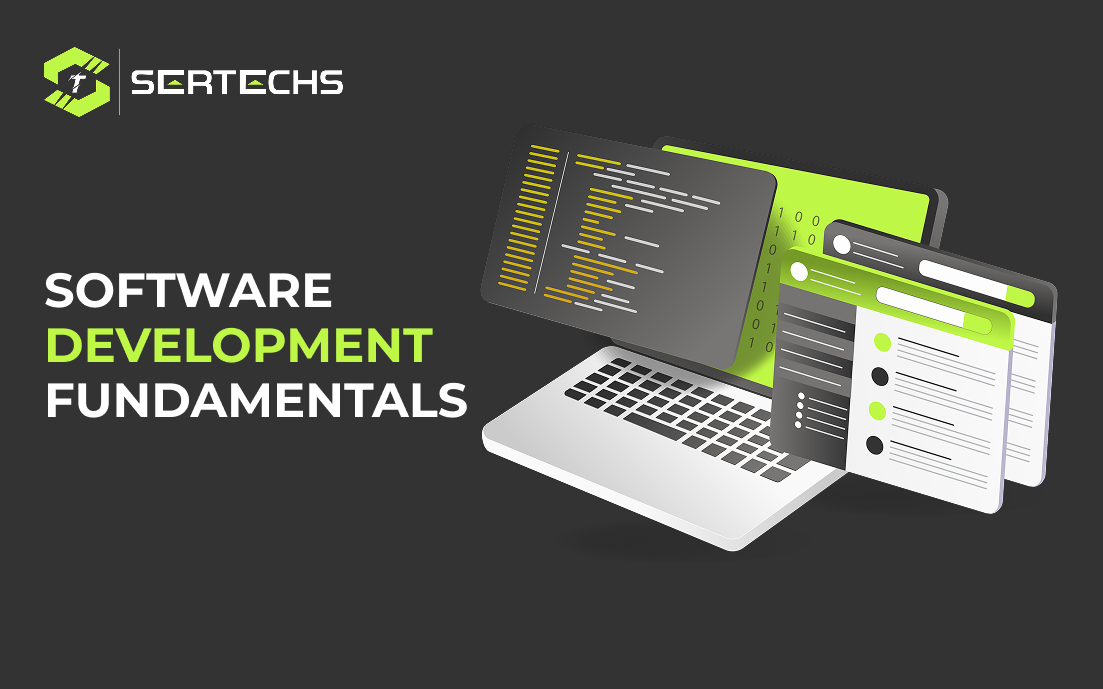Software development fundamentals encompass the essential principles, concepts, and practices that are foundational to building high-quality software efficiently and effectively. Mastering these fundamentals is crucial for anyone pursuing a career in software development. Here are some key software development fundamentals:
Understanding of Algorithms and Data Structures:
Algorithms are step-by-step procedures or formulas for performing tasks or solving problems.
Data structures are ways to organize and store data to perform operations efficiently.
Understanding algorithms and data structures is fundamental for efficient coding and problem-solving.
Programming Languages:
Learn one or more programming languages in-depth, including syntax, data types, control structures, functions, and object-oriented programming principles.
Understand the strengths and weaknesses of different languages and choose the appropriate language for a given task.
Version Control Systems (e.g., Git):
Understand version control concepts, branching strategies, and collaboration workflows.
Learn to use version control tools like Git to manage code versions, collaborate with a team, and track changes in a project.
Software Development Life Cycle (SDLC):
Understand the stages of SDLC, including requirements gathering, design, development, testing, deployment, and maintenance.
Learn about different SDLC methodologies like Waterfall, Agile, Scrum, and Kanban.
Software Testing:
Understand testing concepts, types of testing (e.g., unit, integration, system, acceptance), and testing strategies.
Learn to write effective test cases and perform testing to ensure software quality.
Object-Oriented Programming (OOP):
Understand the principles of OOP, such as encapsulation, inheritance, polymorphism, and abstraction.
Learn to design and implement software using OOP concepts to enhance code reusability and maintainability.
Database Concepts and SQL:
Understand fundamental database concepts like tables, relationships, normalization, and indexing.
Learn to write and optimize SQL queries for database operations and manipulation.
Web Development Fundamentals:
Understand web technologies like HTML, CSS, JavaScript, HTTP, and RESTful APIs.
Learn how to create web applications, structure web pages, and interact with back-end servers.
Agile and Scrum Methodologies:
Understand Agile principles and values, iterative development, and customer feedback.
Learn about Scrum roles, ceremonies (e.g., daily stand-ups, sprint planning), and artifacts (e.g., product backlog, sprint backlog).
Problem-Solving and Debugging:
Develop problem-solving skills to break down complex problems into smaller, manageable tasks.
Learn effective debugging techniques to identify and fix software bugs.
Security Principles:
Understand basic security concepts, such as authentication, authorization, encryption, and secure coding practices.
Learn to write secure code and protect against common security vulnerabilities.
Documentation and Code Comments:
Learn the importance of documenting code for future reference, maintenance, and collaboration.
Develop the habit of writing clear and concise code comments to explain code functionality.
Continuous Integration and Deployment (CI/CD):
Understand the principles of CI/CD, automating build and deployment processes, and ensuring code quality through automated testing.
These fundamentals provide a strong foundation for software developers and enable them to adapt to new technologies and methodologies as the field of software development continues to evolve.





